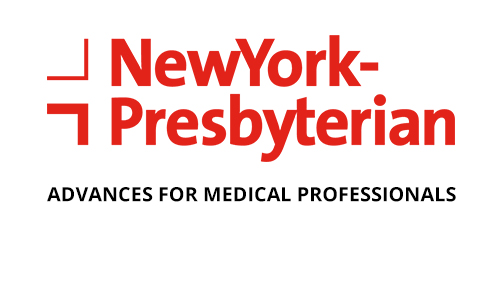Protocol-Based Management of Geriatric Hip Fracture

Dr. H. John Cooper and Dr. R. Kumar Kadiyala
NewYork-Presbyterian is poised to establish a standardized protocol in the management of hip fracture in the elderly. Led by the Department of Orthopedics at NewYork-Presbyterian/Columbia University Medical Center, a multidisciplinary team with representatives from orthopedics, anesthesiology, geriatrics, nursing, physical therapy, and social work is convening monthly to develop best practices that can be implemented throughout the institution.
“Hip fractures increase exponentially as we age,” says R. Kumar Kadiyala, MD, PhD, a Columbia orthopedic surgeon with expertise in trauma and hand/upper extremity surgery and a member of the reviewing team. “By and large, fragility fractures in individuals in their 70s and 80s are almost always associated with some degree of osteoporosis or poor bone health. And as they age they have more comorbid medical problems and likely to have a cardiac, neurologic, or pulmonary issue.”
“Making sure elderly patients are as healthy as they can be before hip fracture surgery entails a rapid and thorough medical assessment, without prolonged medical testing that in the long run won’t change the patient’s outcome.”
— Dr. R. Kumar Kadiyala
Dr. Kadiyala likens the process of standardizing protocols for hip fracture to those developed for stroke management where time is of the essence. “With hip fracture, we believe certain treatments should also be performed within a window of opportunity,” he says. “We’ve documented and studies have shown that hip fractures treated in an expeditious manner have better, overall outcomes for patients. To that end, one recommendation will be to expedite surgery within 24 to 48 hours of presentation.”
H. John Cooper, MD, a specialist in adult reconstructive orthopedic surgery with a focus on primary and revision hip and knee arthroplasty, is also a member of the team developing the hip fracture protocol. “Elderly patients frequently come in with multiple comorbidities,” says Dr. Cooper. “They require a higher level of care than a healthy patient having an elective surgery. Surgical timing, anesthesia technique, surgical approach, and early mobilization are all very important. Minimizing medications that put them at risk for delirium is critical. We have a short window to medically optimize these patients and bring them to the operating room so that we can get them mobile as soon as possible and prevent complications.”
“Most patients with displaced femoral neck fractures are best managed with hip arthroplasty,” continues Dr. Cooper. “We apply the latest guidelines for best practice treatment, utilizing anterior approach hip surgery that minimizes soft tissue damage and allows these patients to become mobile more quickly. It is a muscle-sparing approach that results in less pain and narcotic requirement postoperatively. We then integrate these patients into a multidisciplinary follow-up protocol.”
Dr. Cooper has looked specifically at the variability of choices of how patients with hip fractures are treated across multiple institutions. “Do those choices affect the ultimate outcome in terms of who takes care of these patients, when they are taken care of, what kind of operation is performed, what service they’re admitted to, and where they are discharged to? Of all those variables, which of these have the greatest influence on mortality, complication rates, readmission rates, and other outcomes?” Dr. Cooper’s study won a research award at the 2017 meeting of the American Association for Hip and Knee Surgeons and will be published in an upcoming issue of The Journal of Arthroplasty.
“How we treat elderly patients with hip fracture hasn’t really changed that much over the last decade or so, but being able to do the surgery quickly is key,” says Dr. Kadiyala. Medical complications for patients following hip fractures can include cognitive neurologic alterations, cardiac or pulmonary issues, blood clots, GI bleeding, urinary tract infection, anemia, and pressure sores. The increased length of stay from these complications then often leads to extended stays in long-term healthcare facilities.
“Unlike patients of a similar age who are planning elective total hip or knee replacement and are relatively healthy, we don’t have a chance to optimize the health of acute hip fracture patients preoperatively,” says Dr. Kadiyala. “Making sure elderly patients are as healthy as they can be before hip fracture surgery entails a rapid and thorough medical assessment, without prolonged medical testing that in the long run won’t change the patient’s outcome.”
“Discussing these issues with orthopedic surgeons from other NewYork-Presbyterian campuses, as well as our medical and anesthesia providers, helps us understand each other’s perspective and enables us to implement a seamless best practice approach to taking care of these difficult injuries and complex patients and optimize their outcomes,” adds Dr. Cooper.
“While we want to apply uniform best practice guidelines at all NewYork-Presbyterian campuses and regional hospitals, we recognize that there will be slight deviations,” says Dr. Kadiyala. “But if we can prevent medical complications and avoid prolonged stays in a rehabilitation facility or discharge to a nursing home, everyone benefits.”
“The team is also seeking ways to ensure that patients are receiving optimal care when they transition back to their homes,” adds Dr. Kadiyala. “Our social workers and care managers stay involved to facilitate their safe recovery.”
Related Publications

Advancing Care for Foot and Ankle Disorders




